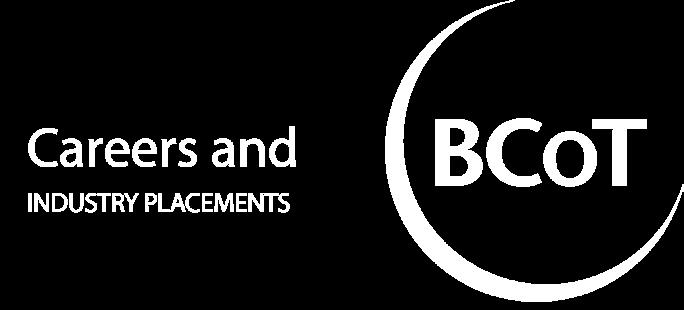

CAREERS

MEET THE TEAM

Anna Thorpe
Careers and Employability Manager
At Basingstoke College of Technology, we provide students with access to careers guidance, support and links to employers throughout their college journey. We want students to gain the experience and knowledge they need to enhance their employability skills and give them the tools and support for successful progression.
Students can access one-to-one appointments in person, virtually or by phone throughout the academic year for general careers information, advice and guidance or for more specific support with CVs, university, job or apprenticeship applications. Parents/Carers can also access careers information for their young person via these means.

Avril Van Der Velde SUN Progression Mentor
Uni-Connect is a programme being delivered by the Southern Universities Network (SUN) and the project is focused on informing students from certain geographical areas about Higher Education progression options.
The geographic areas are selected because participation in higher education is lower than would be expected given the GCSE results of the area. The students who live in these areas are referred to as Uni-Connect students and they can access one-to-one appointments with the SUN Progression Mentor to discuss what higher education options are available to them. This can include: apprenticeships, HNDs, HNCs, a foundation year and university. The SUN Mentor works closely with the Careers and Employability Manager to arrange visits to universities, UCAS fairs, apprenticeship events and for guest speakers to come into college to inform students about entry routes into industries.
OUR OFFER TO STUDENTS
• Confidential and impartial high-quality careers, education, information, advice and guidance (CEIAG) to meet the needs of the learners via one-to-one appointments (face-to-face, virtual or by telephone as appropriate) with a qualified Careers and Employability Manager.
• Careers Drop-In Sessions.
• University and Higher Education support, including help with all aspects of the UCAS application process and an in-house dedicated UCAS Information event.
• Advice on applying for jobs and apprenticeships, including speaking to the on-site apprenticeship team, writing CVs and covering letters and preparation for interviews.
• Support with planning an industry placement in relation to the learner’s vocational course and evaluation of experience to develop their employability skills and industry knowledge.
• Opportunities for meaningful encounters with the on-site apprenticeships team and with employers through apprenticeship recruitment fairs.
• Opportunities for meaningful encounters with employers, wellbeing providers and universities through an annual in-house progression event.
• A designated Google Classroom where part-time and fulltime jobs, apprenticeships and voluntary opportunities are advertised, and the opportunity to speak to employers advertising job roles at progression events throughout the year.

OUR OFFER TO PARENTS AND CARERS
• Access to careers and industry placement information on the BCoT website including progression information and a careers calendar of events.
• Termly parent/carer newsletter including details of careers and progression events.
• Specific industry placement video for parents and carers available on the BCoT website at the start of the academic year.
• Careers information, advice and guidance sessions to support parents and carers for their young person are available via phone / 1:1 in person / virtually.
• Progression information evening for parents and carers to hear about progression routes including higher education and apprenticeships.

COLLEGE CAREERS CALENDAR
Our yearly careers programme can be accessed via the college website at bcot.ac.uk/careers
This is regularly updated throughout the year to reflect additional guest speakers and events as they arise and is reviewed annually.
We assess the impact of our careers programme on students through evaluation forms completed by the students, staff and parents/carers and also from our student destination data. In addition to the feedback we obtain from evaluations following talks/events, we welcome any comments on our careers programmes via email: careers@bcot.ac.uk
SPEAK TO A CAREERS ADVISER
We’ve got an expert careers team ready to give you impartial, personalised advice on your careers journey. They can help you find job opportunities and industry placements, craft your university application, smarten up your CV and develop your interview skills. If you would like to book an appointment with our Careers and Employability Manager, please use the QR code below.

A CAREERS APPOINTMENT HERE


WHAT ARE THE GATSBY BENCHMARKS?
The Gatsby Career Benchmarks are the recommended elements of good practice in career guidance and are the framework that schools and colleges use to develop a good careers programme.
ONE: A stable careers programme
TWO: Learning from careers and labour market information
THREE: Addressing the needs of each student
FOUR: Linking curriculum learning to careers
FIVE: Encounters with employers and employees
SIX: Experiences of workplaces
SEVEN: Encounters with further and higher education
EIGHT: Personal guidance
environment. Clients must the limits of confidentiality
at the outset. Disclosure of information should only be made consent or when required
ontinuous Professional Development maintain their professional knowledge and skills participation in continuous development informed practice and the National Standards: Career


1. Accessibility: Members must promote access to career development activities and services in a range of ways that are appropriate and ensure inclusion.
2. Accountability: Members are accountable for their career development activities and services and must submit themselves to whatever scrutiny is appropriate to their role, including the CDI Discipline and Complaints Procedure. Members must act in the interests of society and at all times exercise integrity, honesty and diligence. Members must, in all circumstances, endeavour to enhance the standing and good name of the career development profession and the Career Development Institute.
3. Autonomy: Members must encourage individual autonomy in making decisions and always act in the individual’s best interests.
4. Competence: Members must monitor and maintain their fitness to practice at a level that enables them to provide an effective service. Members must represent their professional competencies, training and experience accurately and function within the boundaries of their training and expertise.
5. Confidentiality: Members must respect the privacy of individuals. Personal guidance interactions/ interviews should be conducted in an agreed and suitably private environment. Clients must be informed of the limits of confidentiality and data-sharing at the outset. Disclosure of confidential information should only be made with informed consent or when required by law.
6. Continuous Professional Development: Members must maintain their professional competence, knowledge and skills through participation in continuous professional development informed by reflective practice and the National Occupational Standards: Career Development.
7. Duty of Care: To Clients, Colleagues, Organisations and Self. Members have a duty of care and are expected always to act in the best interests of their clients. Members must develop and maintain professional and supportive working relationships with colleagues both inside and outside their organisation and respect the contributions of other career development professionals to the activities and services on offer. Members must fulfil their obligations and duties to their employer (where applicable), except where to do so would compromise the best interests of clients. Members have a duty of care to themselves, both in terms of their personal integrity, personal safety and their capacity to practise in order to provide an effective service to clients.
8. Equality: Members must actively promote equality and diversity and work towards the removal of barriers to personal achievement resulting from prejudice, stereotyping and discrimination.
9. Impartiality: Members must ensure that professional judgement is objective and takes precedence over any external pressures or factors that may compromise the impartiality of career development activities and services. In doing so, members must ensure that advice is based solely on the best interests of and potential benefits to the client. Where impartiality is not possible, this must be declared to the client at the outset.
10. Transparency: Members must provide career development services and activities in an open and transparent manner.
11. Trustworthiness: Members must act in accordance with the trust placed in them, ensure that the clients’ expectations are ones that have reasonable expectation of being met and honour agreements and promises.
All career development activities and services, regardless of delivery method (e.g., face-to-face, group, telephone, web-based), are covered by this Code of Ethics; specific job roles are avoided. Complaints regarding a breach of this Code of Ethics will be handled according to the CDI Discipline and Complaints Procedure, available at www.thecdi.net/Code-of-Ethics. For information on legal requirements, visit www.gov.uk; specific legislation for each principle can also be found at www.thecdi.net/Code-of-Ethics.

